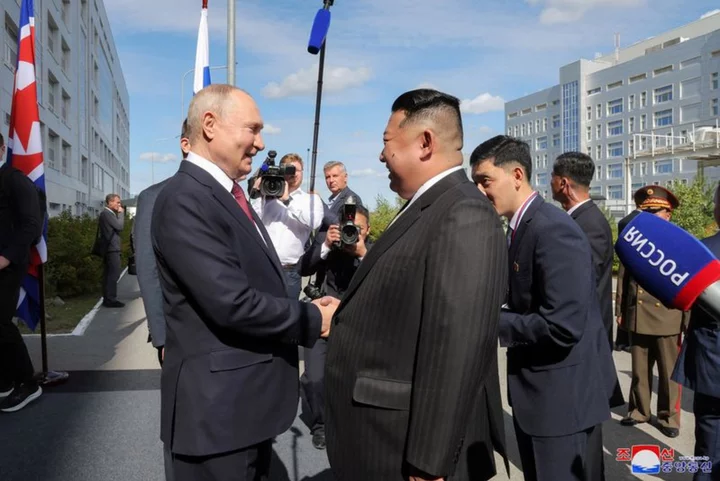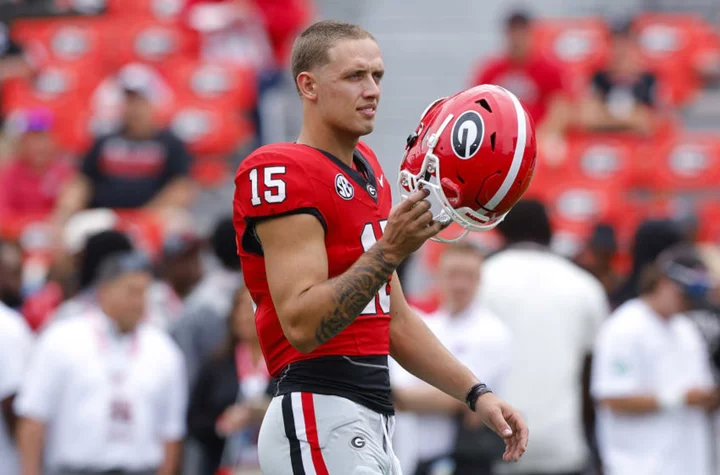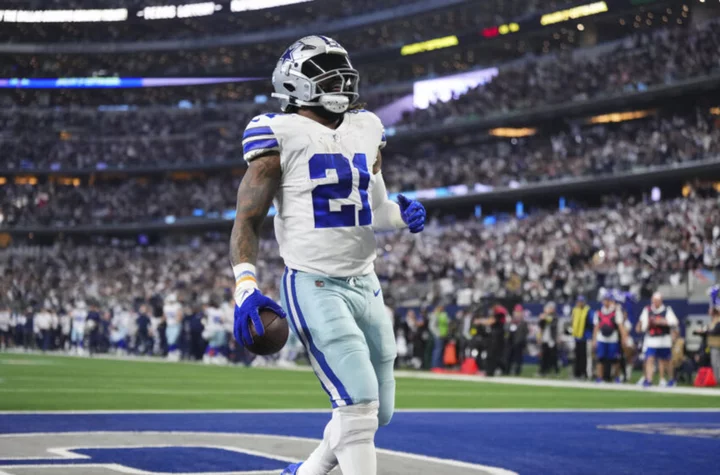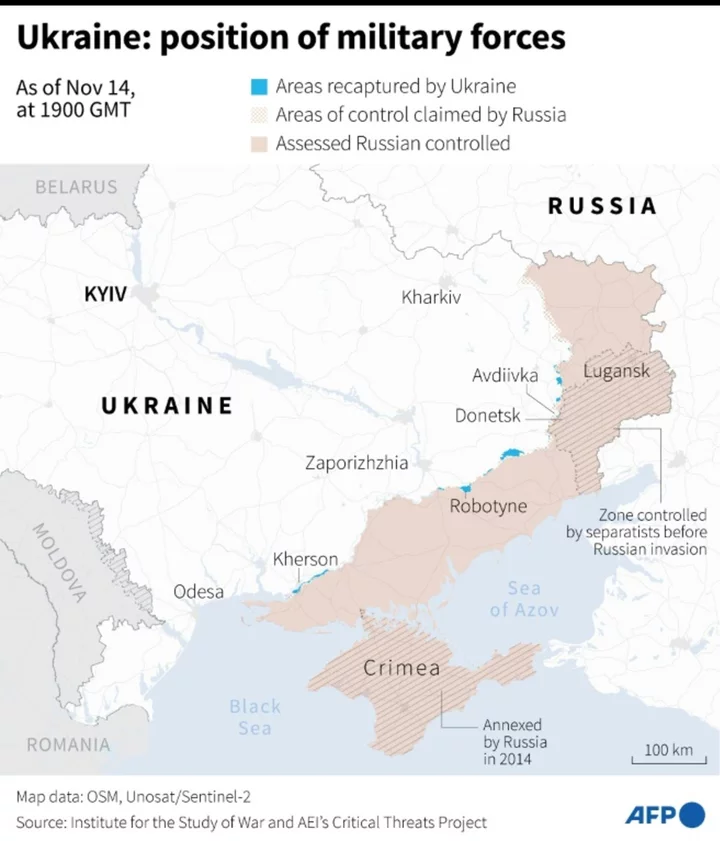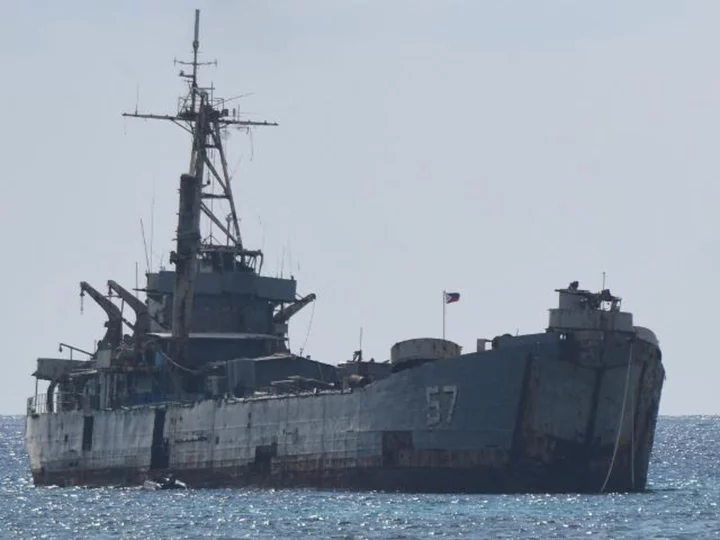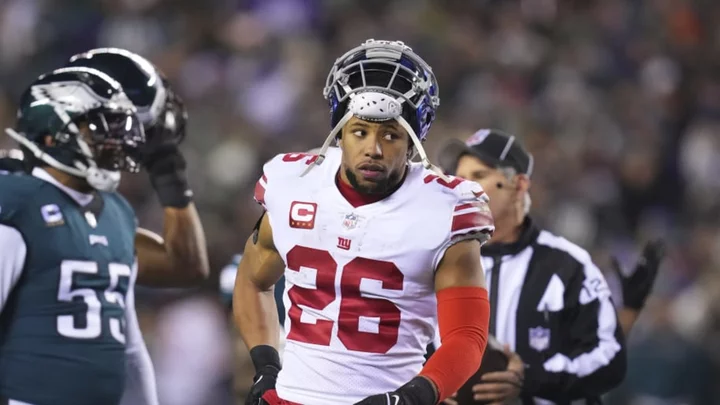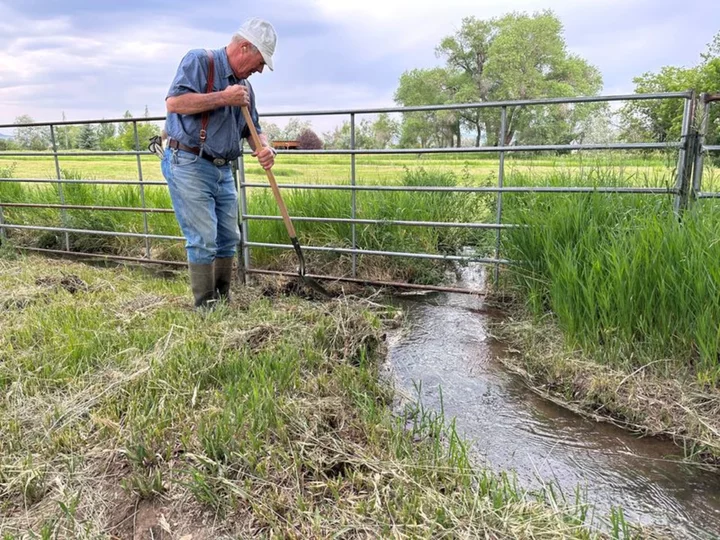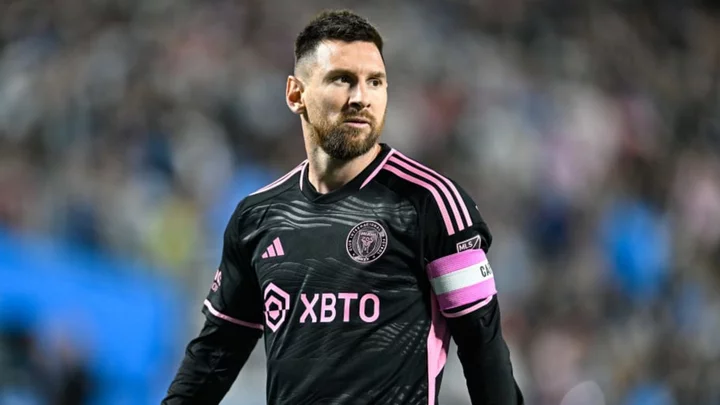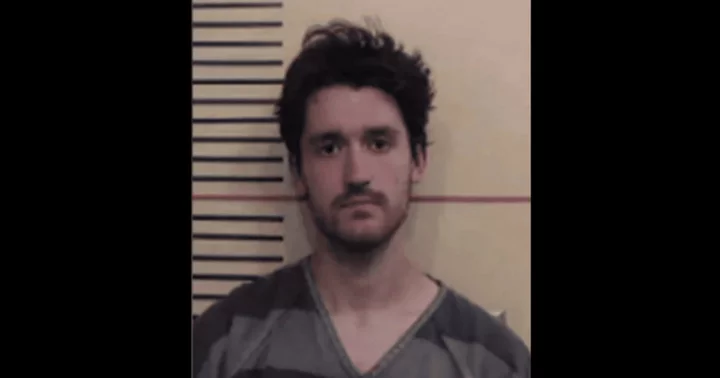By Hyonhee Shin and Guy Faulconbridge
SEOUL/MOSCOW (Reuters) -Russian President Vladimir Putin accepted Kim Jong Un's invitation to visit North Korea, stoking U.S. concerns that a revived Moscow-Pyongyang axis could bolster Russia's military in Ukraine and provide Kim sensitive missile technology.
The invite was made during a summit in eastern Russia at which they discussed military matters, the war in Ukraine and helping North Korea's satellite programme.
Calling each other "comrades", the two leaders toasted their friendship on Wednesday with Russian wine after the 70-year-old Putin showed Kim, 39, around Russia's most modern space launch facility and they held talks alongside their defence ministers.
"At the end of the reception, Kim Jong Un courteously invited Putin to visit the DPRK at a convenient time," KCNA said, referring to the Democratic People's Republic of Korea, North Korea's formal name.
Kremlin spokesman Dmitry Peskov said that Putin "gratefully" accepted the invite and that Foreign Minister Sergei Lavrov would travel to Pyongyang in October. Since Russia's 2022 invasion of Ukraine, Putin has rarely travelled abroad.
For the United States and allies, the burgeoning friendship between Kim and Putin is a concern. Washington has accused North Korea of providing arms to Russia, but it is unclear whether any deliveries have been made.
Both Russia and North Korea have denied those claims, but promised to deepen defence cooperation. During a visit to North Korea in July, Defence Minister Sergei Shoigu was shown banned ballistic missiles by Kim.
The U.S. State Department said on Wednesday the Biden administration "won't hesitate" to impose additional sanctions on Russia and North Korea if they conclude any new arms deals.
On Thursday, the top national security officials of the United States, South Korea and Japan discussed the Putin-Kim meeting in a call.
A White House statement said U.S. national security adviser Jake Sullivan and counterparts Takeo Akiba of Japan and Cho Tae-yong of South Korea noted that any North Korean arms exports to Russia "would directly violate multiple U.N. Security Council resolutions, including resolutions that Russia itself voted to adopt."
South Korea's National Security Council (NSC) said on Thursday North Korea and Russia would "pay a price" if they violated U.N. Security Council resolutions.
Kim is due on Thursday to visit military and civilian aviation factories in the Russian city of Komsomolsk-on-Amur and to inspect Russia's Pacific fleet in Vladivostok, Putin said.
'FRIENDSHIP'
Over a sumptuous lunch of Russian "pelmeni" dumplings made with Kamchatka crab, white Amur fish soup and sturgeon, Kim on Wednesday toasted to Putin's health, to the victory of "great Russia" and to Korean-Russian friendship, predicting victory for Moscow in its "sacred fight" with the West.
North Korea was founded in September 1948 with the backing of the Soviet Union, and Moscow supported it for decades during the Cold War, though support dropped off after the 1991 collapse of the Soviet Union.
In recent years, China has been seen as the power with the most influence over Kim, but Pyongyang's leaders have often tried to balance ties with both Moscow and Beijing.
After taking over from Boris Yeltsin in 1999, Putin visited Pyongyang in July 2000 for a meeting with Kim Jong Il, the father of Kim Jong Un.
At the summit on Wednesday, it was unclear just how far Putin was prepared to go in fulfilling North Korean wish lists for technology.
Amid artillery battles in Ukraine, Russia has ramped up its shell production, but a North Korean supply line could be useful.
North Korea is believed to have a large stockpile of artillery shells and rockets compatible with Soviet-era weapons, as well as a history of producing such ammunition.
Asked whether Russia could simply remove sanctions on North Korea, Kremlin spokesman Dmitry Peskov said Russia remained a responsible member of the U.N. Security Council.
But Peskov added that Moscow would develop its relations with North Korea in accordance with its own interests.
Russian diplomats said the United States was hypocritical to criticise the summit because Washington had sown chaos and sent weapons to allies across the world.
"The United States has no right to lecture us on how to live," Russia's ambassador to the United States, Anatoly Antonov, said in a statement.
(Writing by Guy Faulconbridge in Moscow; Reporting by Hyonhee Shin, Jack Kim and Soo-hyang Choi in Seoul and Steve Holland, Kanishka Singh and David Brunnstrom in Washington; Editing by Gerry Doyle, Angus MacSwan, Alexandra Hudson)

